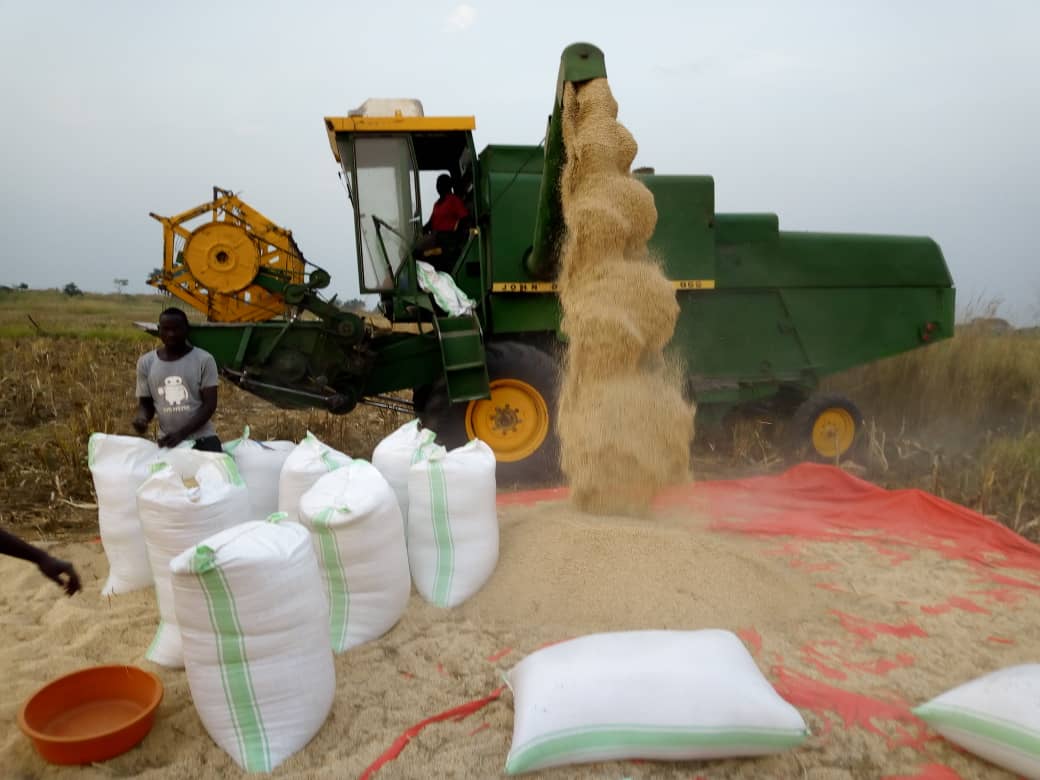GULU, Uganda: In 2017 when prices of soya beans went up, West Acholi Growers Cooperative Union ventured into the produce, only to regret when there was a bumper harvest that led to price fall. Last year the union that has 55 primary societies with 8548 farmers ventured into cotton and Epuripur,(sorghum used in making local beer, Eagle Lager), similarly, according to the manager, Bob Ogen Alberto, they are yet to recover from the shocks due to losses.
“We have tried as a union to get crops that will yield our profits. We ventured into short maturing crops like soya beans and sorghum after getting the assurance of market but things are not working out as assumed,” Ogen told our reporter at the Layibi based offices in Gulu.
He said when they planted soya beans in 2017, they were targeting mainly the Kenyan market and Rwandan market. “We all recall what happened in Kenya in 2017 (Election violence). This hurt us as a union. We made huge losses,” he said.
He said when Nile Breweries came in with demand for Epuripur used for local beer manufacturer, the union invested in 160 acres of land where they planted the sorghum. “We were shocked when Nile Breweries told us they have shut down the beer plant due to high taxes imposed on them by the government,” said Ogen. He explained that tons of sorghum harvested from their 160 acres now have no market. “We now have no market for this sorghum, and to make matters worse, the sorghum can’t be eaten by humans. We are now at the mercy of middlemen who are buying the sorghum at shs450 per kg from the original shs2500- 2000 per kg,” he said.
He said the union has so far harvested 55 tons of which they had only supplied 35 tons, and are now stuck with 20 tons of sorghum.
“That’s already a very big loss to us as a union. Every year comes with its own challenges, so we are now very confused, this 2019,” he said.
He said Uganda as a nation still has a big challenge that it can’t consume all that is produced locally, leaving farmers to rely on foreign and regional markets that are not reliable.
Two years ago, a similar scenario happened to the Sorghum farmers in Kabale when they were stuck with tons of produce due to lack of market. The firms that used to buy their sorghum, such as Nile Breweries and others from Rwanda and DR Congo slapped a ban on their crop.
The CooperatorNews however established that unlike the current case of West Acholi Cooperative Union, the Kabale farmers had their sorghum rejected due to poor quality.
Nile Breweries Limited (NBL) has in recent years spent billions of shillings buying the sorghum from farmers spread mainly in eastern and northern Uganda.
NBL has so far pumped in over 30 billion in the pockets of farmers, dealers, and suppliers, with farmers getting the lion’s share.
Nile Breweries has been buying epuripur from Ugandan farmers for the past dozen years, as the main brewing raw material for its immensely popular Eagle brands—Eagle Lager and Eagle Extra.
NBL has been able to nurture a robust sorghum farming chain due to a progressive beer excise tax policy adopted by the government to support the use of local brewing raw materials. Beer brewed from locally grown sorghum is charged 20 percent excise tax, as opposed to 60 percent for beer made from imported raw materials.
The NBL Director Corporate Affairs, Onapito Ekomoloit said much as NBL had tried to create a win-win situation with the farmers and government, the issue of high taxes slapped on brewing local beer was unbearable.
NBL has been giving farmers seeds at subsidized prices on top of closely monitoring their farms using their agricultural extension officers, who work with the farmers to ensure control of diseases and pests to ensure high yields.
